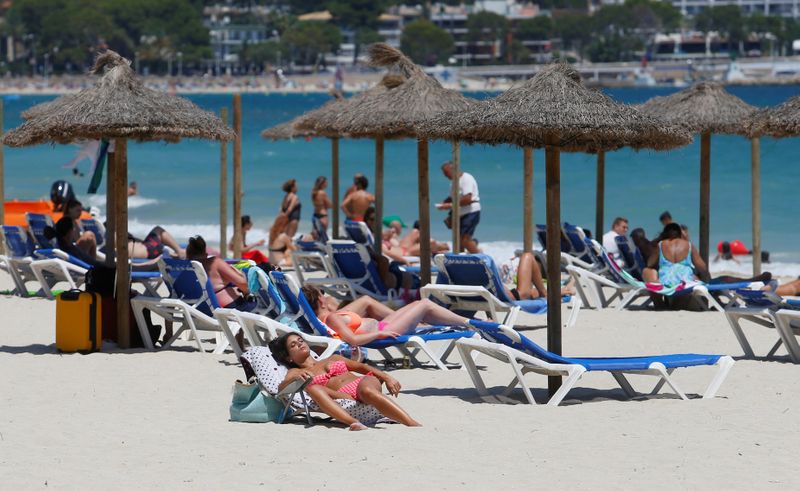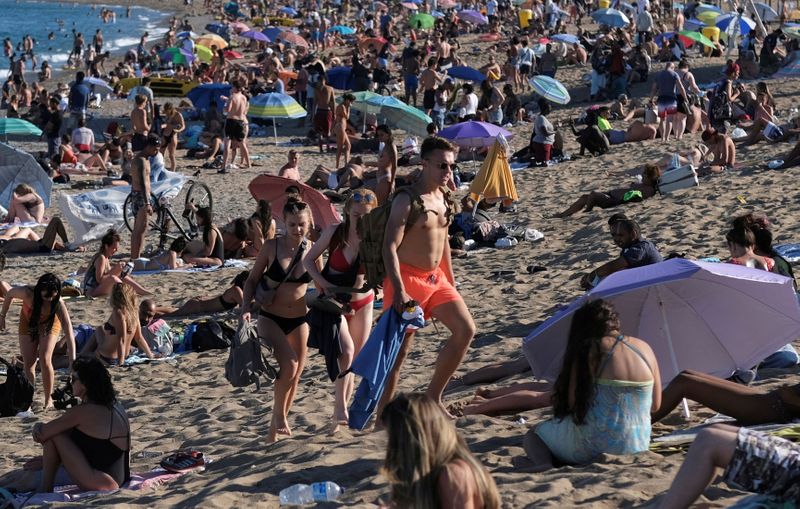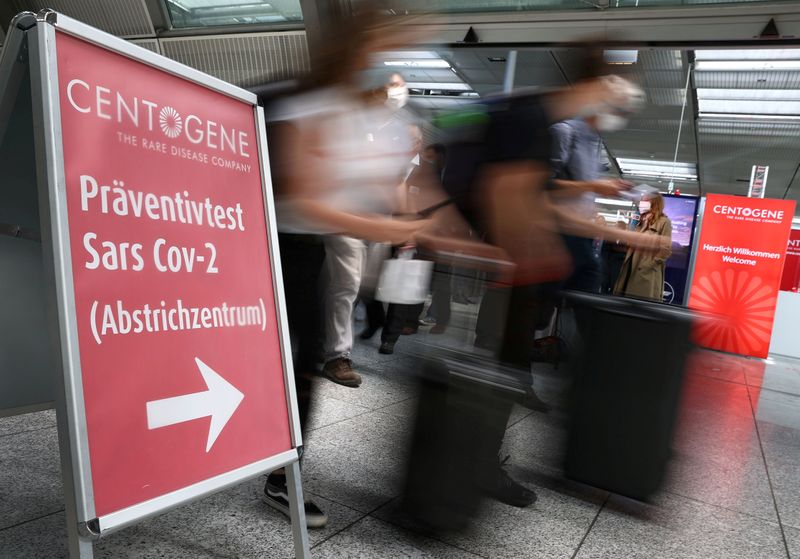BERLIN/OSLO (Reuters) – With the summer vacation season in full swing Germany, France and Norway are taking measures to try to stop people returning from holidays abroad from spreading the coronavirus.
The new restrictions, imposed as countries worry about a second COVID-19 wave, could dampen desire to travel abroad and deal a severe blow to Spain’s tourism sector, which accounts for some 12% of the country’s economic output.
Norway said it will re-impose a 10-day quarantine requirement for people arriving from Spain from Saturday, while France advised people not to travel to the Spanish region of Catalonia.
Germany said it will offer returning holidaymakers free coronavirus tests.
Spain has begun a tentative tourism reopening after a dismal first half of the year. But it has also seen a rise in infections in recent weeks and regional authorities across the country have introduced new restrictions as they seek to stamp out the surge.
In France, authorities are especially worried about Catalonia, the northeastern region that includes Barcelona and many popular holiday spots.
“Concerning the situation in Catatonia, which is displaying worsened indicators for infection, we strongly encourage French citizens to avoid going there until the health situation improves,” Prime Minister Jean Castex told reporters.
Germany will offer all travelers returning from countries designated high-risk a free coronavirus test or oblige them to stay at home for two weeks.
Spain is not on the high-risk list but German health officials urged people coming home from holidays in party destinations there and elsewhere to get themselves tested within three days.
Videos in recent weeks of unruly behaviour by some Germans on the Spanish island of Mallorca and in Bulgaria has raised concerns that holidaymakers are at increased risk of infection that could be brought back home.
“The current infection figures show once again that we are still in the middle of the corona pandemic,” Health Minister Jens Spahn said in a statement. “And increasing travel increases the risk of more infections being brought back into Germany.”
Germany has designated 130 countries as high-risk, including Turkey, Egypt and the United States. Arrivals from that list who cannot show a negative test result are already required to go into quarantine for 14 days.
German authorities said they will cover the cost of the tests in the first instance and are instructing airport operators to set up testing facilities.
(Additional reporting by Christian Lowe in Paris; Editing by Frances Kerry)
























